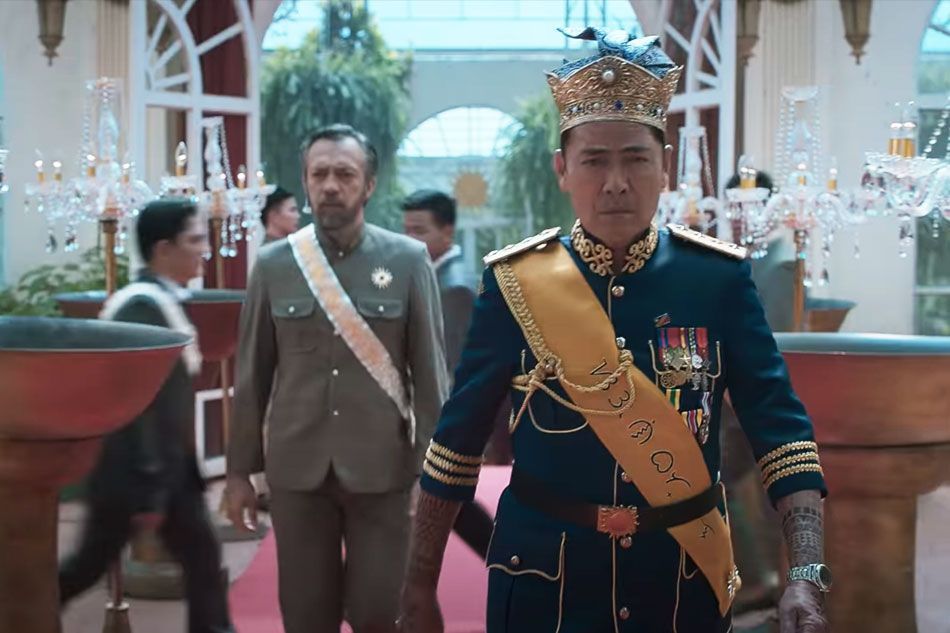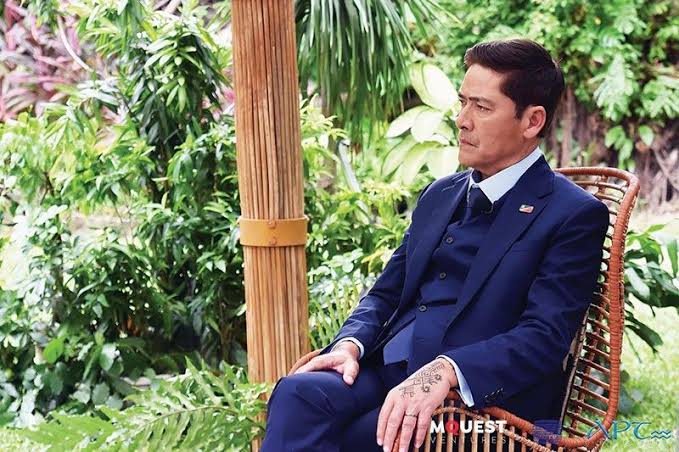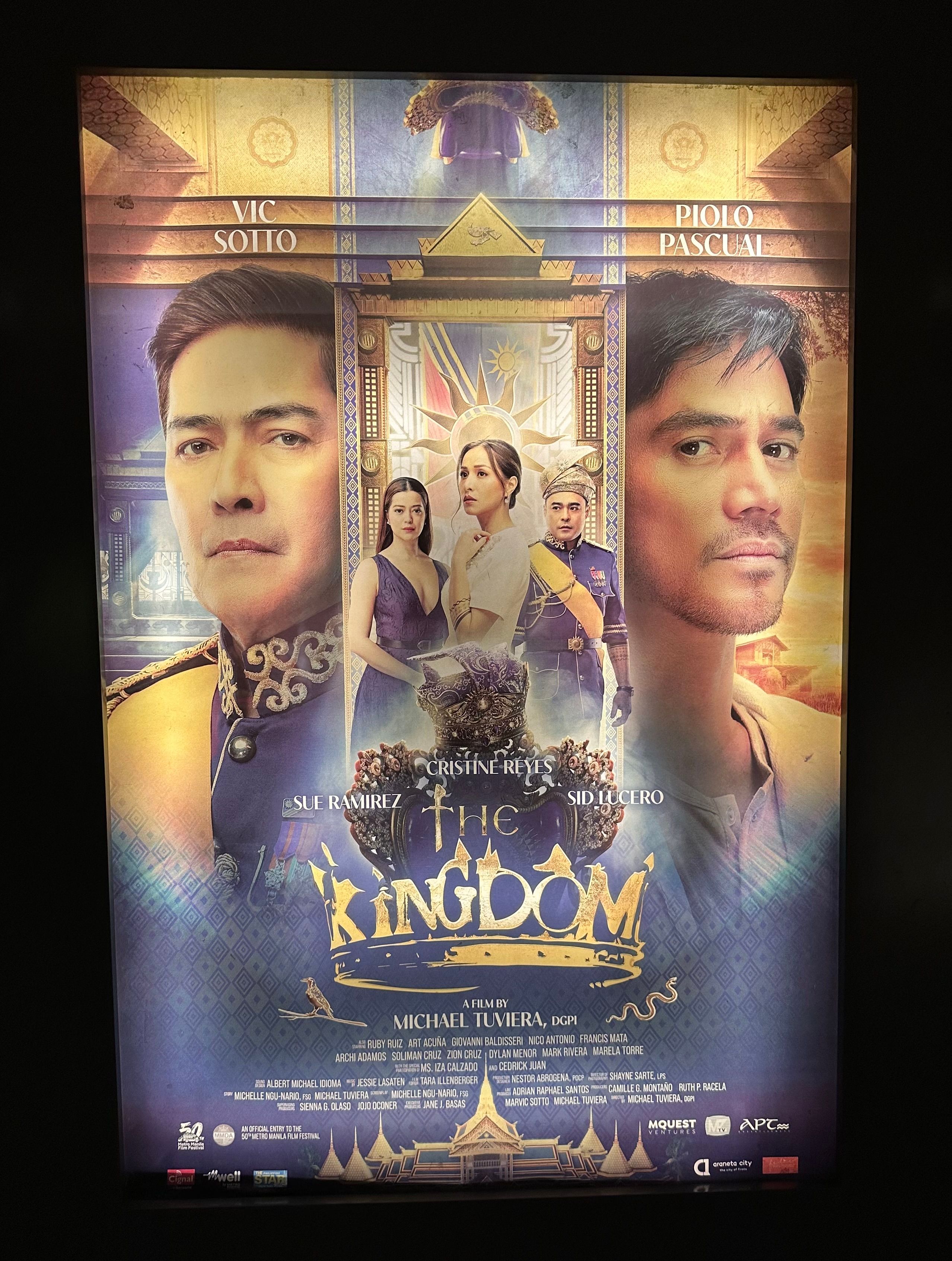Smile, Vic, Smile: A review of MMFF's 'The Kingdom'
At A Glance
- Vic is stoic, stiff, and formal throughout this portrayal, while Piolo offers us the 'everyman' dignity his Sulo should possess.

Vic Sotto is one of the stalwarts of our annual Metro Manila Film Festival, and he’s in The Kingdom, an alternative history/fantasy drama directed and co-written by Michael Tuviera. Michelle Ngu-Nario works with Tuviera on the screenplay. The only problem for the legion of fans who would troop every December to Vic’s movies is that here in The Kingdom he rarely breaks into a smile, and you can count on one hand the number of times he’ll crack a joke or provide some shaft of light humor.
The Kingdom is a high-concept storyline, world-building a Philippines that, like Thailand, is an ASEAN country that was never colonized - so it isn’t even called the Philippines but a name that has more to do with our Malay forebears and heritage, Kalayaan. Thanks to CGI, much has been done to change our Manila landscape and insert a different form of government. And ruling this nation's monarchy is Lakan Makisig (Vic Sotto).
It’s a strong, imaginative premise, and while there are minor ‘speed bumps’ early on, I’ll credit the filmmakers for suspending our disbelief and credibly conjuring up this alternate Philippines/Kalayaan. The narrative concerns the royal family and how the Lakan wants to step down but is still undecided on which of his children will succeed him. There’s Magat Bagwis (Sid Lucero), Dayana Matimyas (Cristine Reyes), and Dayang Lualhati (Sue Ramirez).

It’s established early on that this Kalayaan is no Paradise and is beset with political strife and issues. The provinces have pockets of the population known as the Tinatwa (Banished). With no markings on their skin, they’re a low caste, similar to the Untouchables of India. And it’s here that we encounter the farmer Sulo (Piolo Pascual).
Guiding the Lakan is Punong Babaylan (Ruby Ruiz), a shaman who reminded me of Rafiki in The Lion King. And there’s a Law of Retribution (Tugmaan) that carries a lot of weight, as even if existing in modern-day tradition, the old laws and customs are paramount. And this will be crucial as a plot device later in the film.
There are no spoilers here. Other than firmly establishing this Kingdom ‘universe’, the screenplay can provide enough twists and turns to make our favorite telenovela very envious. Family, loyalties, hurt feelings, retribution, and justice are all themes in the film, and they help us invest in particular characters.

Vic is stoic, stiff, and formal throughout this portrayal, while Piolo offers us the ‘everyman’ dignity his Sulo should possess. Cristine Reyes’ Matimyas has an actual arc, and kudos to her for making this clear to us.
I made mention of minor speed bumps. While I know it was done in the name of expediency in establishing the political situation, I don’t think the ruler of any country would allow himself to be interviewed and sit patiently. At the same time, they cut away to news footage of the rebel leader and then react. That’s just too implausible for us in the media. And if you’ve kidnapped someone, I couldn’t take how lax the security measures were to secure your prisoner. You’re well-oiled and organized to execute the kidnapping, then you’ll be so inept afterwards?
But yes, for the concept alone and pushing to create something different while still entertaining, I’ll salute the team behind The Kingdom and applaud the awards they racked up.